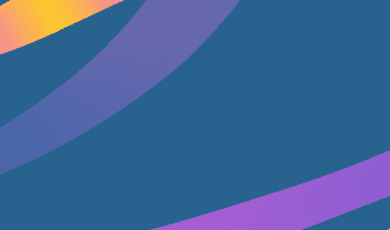
In today's interconnected world, the significance of effective and secure communication cannot be overstated, especially when it comes to medical certified-translation-services">translation services. Whether working with multinational pharmaceutical companies, healthcare providers, or life sciences organizations, ensuring the safety and privacy of sensitive information during translation is paramount. As a site dedicated to exploring security features, technologies, and the pivotal role of security personnel, we delve into the correlation between secure communication and medical translation, identifying best practices and innovations within the industry.
Why Is Safe Communication Critical in Medical Translation?
The domain of medical translation serves as the backbone of global healthcare, allowing doctors, researchers, patients, and regulatory bodies to communicate without linguistic barriers. Incorrect or compromised translations can lead to serious misunderstandings, regulatory failures, or even life-threatening situations. Compounding this, the life sciences sector frequently handles confidential patient data and proprietary research, making it a prime target for cyber threats and information leakage.
- Data Privacy Laws: Healthcare documentation is governed by regulations such as HIPAA (US), GDPR (EU), and other local privacy laws. Non-compliance can incur severe fines and legal actions.
- Risk of Data Breaches: The translation process often requires transferring large amounts of sensitive data between parties, introducing vulnerabilities for cybercriminals to exploit.
- Professional Integrity: Providers of life sciences translation services are trusted with proprietary data, detailed clinical trial reports, and patient records, making secure communication non-negotiable.
Security Features and Technologies Safeguarding Medical Translations
The intersection of security technology and medical translation has led to the development of robust protective measures. Here’s an exploration of the key features, technologies, and best practices deployed to ensure safe communication in life sciences translation services:
1. End-to-End Encrypted Communication Channels
The first line of defense begins with secure communication platforms. End-to-end encryption (E2EE) ensures that only authorized parties can read transmitted content. Translation management systems, cloud storage solutions, and messenger platforms are increasingly integrating E2EE, so that even service providers cannot access unencrypted messages. This is essential in preventing eavesdropping or data interception during document transfer.
2. Secure File Transfer Protocols
The exchange of documents between medical organizations and life sciences translation services employs advanced Secure File Transfer Protocols (SFTP) and encrypted email gateways. These methods provide an assured, auditable path for data with built-in password protections and user authentication, disproving weaknesses inherent in standard email or file-sharing services.
3. Multi-Factor Authentication (MFA) and Access Control
At the organizational level, secure translation technology platforms utilize Multi-Factor Authentication (MFA) and granular access control. Only pre-authorized personnel can view or edit files, minimizing insider threats. Advanced systems can track all user activities, creating an audit trail crucial for regulatory compliance.
4. GDPR and HIPAA-Compliant Data Handling
The legal landscape demands rigid adherence to data privacy norms. Reputable providers of medical and life sciences translation services maintain strict protocols for data storage, processing, and deletion—often hosting servers in countries with robust privacy laws and deploying meticulous anonymization for sensitive patient data.
5. Translation Memory Security and Confidentiality
Translation memories (TMs) increase efficiency by reusing previously translated terms and phrases, but also represent a potential security risk if improperly handled. Modern translation agencies encrypt TMs, strictly limit access, and regularly audit for breaches, ensuring proprietary content and patient data are never compromised.
6. Vetting and Training of Personnel
The human element is as critical as technology. Trusted translation providers conduct rigorous background checks on linguists and project managers, employing security training akin to those implemented by security agencies and bodyguard firms. Continuous education on phishing, safe communication, and cybersecurity safeguards reduces human error and upholds professional integrity.
7. Secure Project Management Platforms
Centralized project management platforms, specifically designed for the translation industry, now incorporate advanced security modules:
- Encrypted dashboards for task assignments
- Time-limited download links
- Detailed user permissions
- Automated reminders for data deletion after project completion
By reducing the reliance on email attachments or personal cloud storage, these platforms decrease the attack surface considerably.
Case Example: How Secure Medical Translation Supports Global Health
Imagine a global pharmaceutical company launching a new vaccine. The process involves sharing clinical trials data with regulatory authorities worldwide, translating clinical protocols for local doctors, and disseminating patient information leaflets to diverse populations.
If any confidential trial data were compromised during translation, it might lead to intellectual property theft, regulatory delays, or reputational damage. Conversely, using secure, encrypted channels and certified translation teams ensures compliance, accelerates product launches, and—most crucially—protects patient safety. Adopting secure communication protocols for medical translation services is thus not merely a requirement, but a competitive edge in the global health sector.
Aligning Security with Translation Excellence
For organizations seeking a partner for medical or life sciences translation services, security should be a core selection criterion. Here are actionable best practices:
- Choose Certified Providers: Opt for agencies with ISO 17100 (Translation Quality) and ISO 27001 (Information Security) certifications. This underscores their commitment to security and quality.
- Demand Protocol Transparency: Providers should clearly explain their security measures, including encryption, authentication, and breach response strategies.
- Establish Clear NDAs: All linguists, project managers, and subcontractors should sign detailed non-disclosure agreements tailored to healthcare requirements.
- Routine Security Audits: Regular penetration testing and workflow assessments ensure evolving threats are identified and contained.
- Employee Security Training: All staff, not just IT, should be fluent in identifying social engineering attempts and safe communication practices.
By integrating security into every facet of the medical translation process, companies can uphold their reputation and meet the demands of an increasingly regulated, data-driven market.
Security as the Foundation of Trust in Medical Translation
The fusion of secure communication, innovative technology, and skilled human resources defines the future of medical translation and life sciences sectors. As in the realms of bodyguards and security agencies, proactive vigilance is vital to anticipate risks and defend against them. When security underpins every aspect of medical translation services, organizations and patients alike can communicate across borders with confidence.
Whether you are a hospital administrator, pharmaceutical executive, or healthcare startup, consider placing security at the heart of your cross-lingual operations. For those in search of exemplary, security-conscious translation, discover more about life sciences translation services tailored to the challenges of the modern medical landscape.








